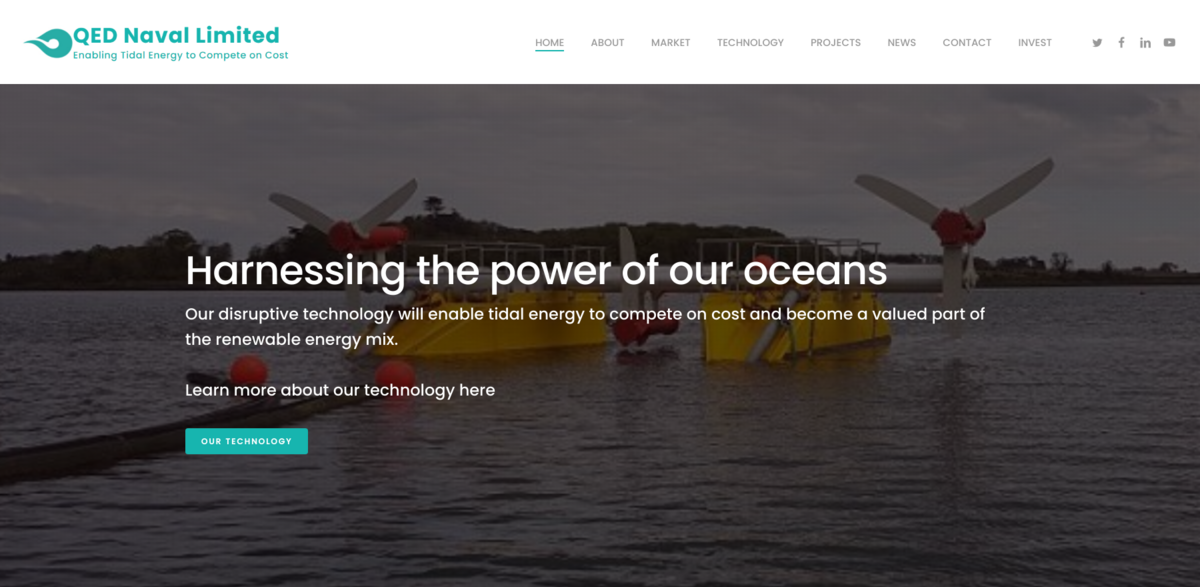What is the QED Naval Project?
QED Naval Ltd is making waves in the marine energy sector with its innovative tidal energy projects. Specialising in marine renewable energy platforms and turbines, QED has carved out a niche as a technology developer and project manager for turnkey tidal energy solutions. Their standout innovation? A self-deploying, submersible tidal platform that slashes operating and maintenance costs by over 60%. Plus, it boosts turbine energy yields by an impressive average of 48%. This isn’t just theory—these technologies are proven and ready to transform how tidal energy is harnessed.
Main Benefits of QED Naval’s Technology
Why does QED’s approach stand out? Here are some key figures and facts that highlight their impact:
- Operating and maintenance costs reduced by more than 60% thanks to the Subhub tidal platform.
- Energy yields increased by up to 48%, maximizing site revenues.
- Tocardo tidal turbines, acquired by QED, come with over a decade of operational experience in Dutch storm barriers.
- The UK’s tides could supply up to 12% of the country’s electricity demand, making tidal energy a crucial player in the renewable mix.
- Tidal energy is uniquely predictable, offering four peak power periods daily, every day of the year—no weather worries here!
QED Naval’s Project Pipeline and Partnerships
QED Naval’s journey has been nothing short of remarkable. They’ve secured EU Interreg funding and are a key player in the €46 million TIGER project—one of the world’s largest ocean energy initiatives. On top of that, QED acquired the Dutch flagship OTP dam project, home to the world’s largest tidal turbine array. This project pipeline is a testament to QED’s growing influence and ambition in tidal energy development.
Technology Behind the Tides
The heart of QED’s innovation lies in their Subhub tidal platform and the Tocardo turbines. The Subhub platform is designed to be self-deploying and submersible, which means it can be installed and maintained with significantly less effort and cost. Meanwhile, Tocardo turbines bring proven reliability, having operated successfully in harsh conditions for over nine years in the Netherlands. Together, these technologies create a powerful, cost-effective tidal energy solution.
Why Tidal Energy Matters
As an island nation, the UK has a unique opportunity to tap into tidal energy. Unlike solar or wind, tidal power is predictable and consistent, with four daily peak periods guaranteed every day of the year. This reliability means tidal energy can provide a stable baseload, potentially replacing gas generation and securing the country’s energy supply. It’s abundant, dependable, and ready to be a cornerstone of the UK’s clean energy future.
Project Impact on Sustainable Development Goals (SDGs)
- SDG 7: Affordable and Clean Energy – advancing renewable tidal energy solutions.
- SDG 9: Industry, Innovation, and Infrastructure – developing cutting-edge marine energy technology.
- SDG 13: Climate Action – reducing reliance on fossil fuels and lowering carbon emissions.
- SDG 14: Life Below Water – promoting sustainable use of ocean resources.
- SDG 17: Partnerships for the Goals – collaborating on international projects like the TIGER initiative.
Looking Ahead: The Future of QED Naval
QED Naval is actively seeking strategic partners to join their special purpose vehicle (SPV) for developing a licensed tidal energy centre in the English Channel. This site has the potential for a massive 300MW capacity, marking a significant step forward in tidal energy deployment. With a solid foundation of technology, projects, and partnerships, QED is poised to lead the charge in making tidal energy a mainstream, reliable, and cost-effective part of the renewable energy landscape.


















